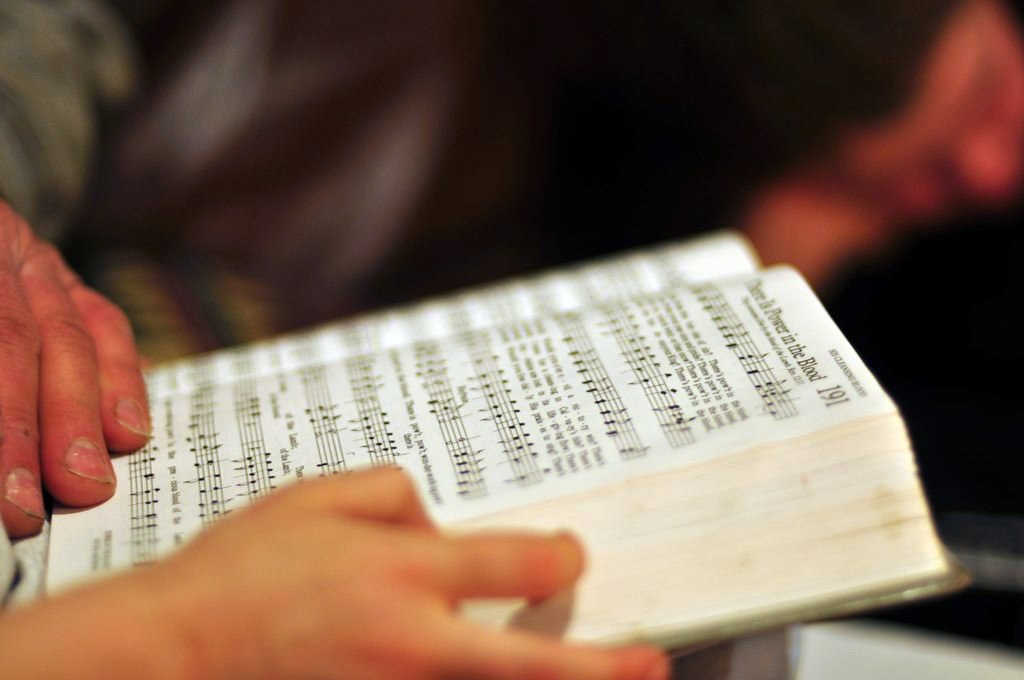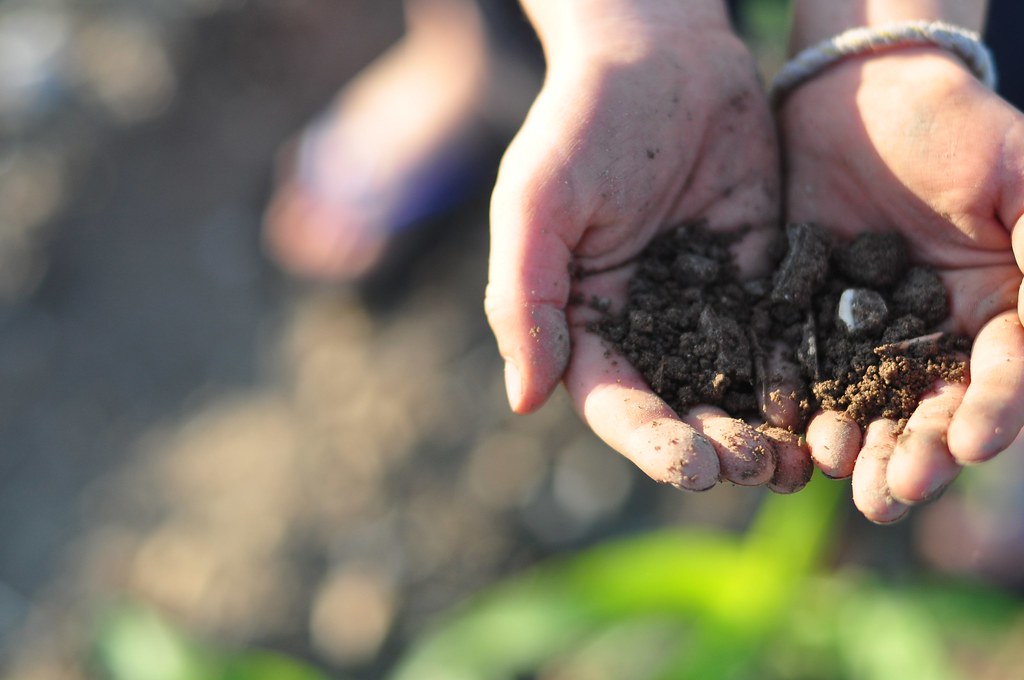Craig Greenfield and his family have lived 16 years in Asian slums and North American inner cities, trying to figure out how to follow this Subversive Jesus who came to bring good news to the poor. Seeing that Jesus said invite the poor for a meal, Craig and his family welcomed homeless friends, local crack addicts, and women from the street corner over for dinner. Their experiments and failures are an invitation to say yes to this subversive Jesus and do something courageous with your life – for the sake of justice, mercy, and faithfulness in a broken world. It’s a grace to welcome Craig to the farm’s front porch today…
guest post by Craig Greenfield
When my daughter Micah was about two years old, we took some time out of our slum community to visit friends.
These friends had a trampoline in their backyard.
So, my son Jayden bounced his sister high, working hard to perfect his technique so that when he landed, he would blast her ten feet into the air.
As Micah’s tiny body took on wings, she flew higher and higher until gravity took over.
Grinning widely, arms flailing with joy, she came hurtling down—slightly off course—and crashed onto the frame of the trampoline.
At the moment of impact, we were all reminded that Micah had a good set of lungs. As she let the world know that all was not well, her shriek expressed what words could not: “Get your parental butts over here and help me!”
We bundled her up and rushed to the hospital, where the doctors gave us the verdict: bad parenting.
Actually — that was the verdict we gave ourselves.











The doctors diagnosed a broken leg, which had to be set with a gorgeous pink cast. (The color pink was a crucial aspect of the healing process.)
The next six weeks were not easy for Micah, who was tearful and constantly in pain. Trapped in her gaudy pink encasement, she needed more hugs…
More cuddles.
More attention.
And more love.
Meanwhile, my love for my son did not change, of course. But my daughter was in pain, and I recognized that she needed more from me in this time of suffering. No one questioned this emphasis. In fact, we enlisted Jayden to help as a caring older brother.
Shortly after this painful incident, my white-goateed mentor, Charles, said cryptically one day, “Doesn’t a father’s love for His suffering child capture something beautiful about the heart of God and His bias for the poor?”
It got me thinking. Growing up, I was taught that no one needs to be singled out because God loves everyone, rich and poor. This is true of God; and in the same way, I love my children equally.
I would lay down my life for either of them.
But some of God’s children suffer greater pain, poverty, and oppression than others on this earth. Through no fault of their own, by the simple fate of birth, some were born into broken families, dysfunctional communities, or war-torn nations. They struggle with abuse, addiction, mental illness, lack of opportunity, or awful living conditions.
And sadly, our society typically expresses the least concern for these children of God.
As I reflected on my response to my daughter’s suffering, I began to understand what Charles meant about our Father God’s particular love for those on the margins.
Theologians call it God’s “preferential option for the poor”—a special concern, even bias, that God has for the people at the bottom of society’s heap, those who need more attention from God and from us.
As His followers, we are called to reflect His priorities and to respond as if one of our own sons or daughters were in pain.
And we are called to teach those priorities to our children.
When holding the poor and marginalized at arm’s length no longer feels right, sometimes that means moving closer. Maybe right into the neighborhood.
Occasionally, people pluck up the courage to verbalize their thoughts about our lifestyle: “Is it a good idea to bring up your kids in some of the world’s worst neighborhoods?” Some folks suggest that we are putting our ministry before the welfare of our children. They wonder if it is good for them to be raised around so many “crazy” people.
Nay and I have thought long and hard about this issue, examining our motives and grappling with Scripture. Of course, we love our kids and want the very best for them. But we want them to grow up in a family where Jesus and his subversive kingdom come first—before comfort, before affluence, and even, if necessary, before safety.
The Israelites faced this same question of allegiance when they used the safety of their children as an excuse not to obey God and enter the Promised Land (Numbers 14:3).
God called them out on their wrong priorities, and because of their disobedience they had to spend forty years in the wrong place. The desert may have been safer, and maybe it had better schools, but it was clearly not where God had called them to go.
The children of the Israelites finally entered the Promised Land, but without their parents.
In making our children into idols, we lose sight of the central place God has for our kids in His upside-down Kingdom purposes.
One day, as I walked with my children down East Hastings Street in Vancouver’s Downtown Eastside, I was struck by how much it reminded me of the Asian slums we had lived in — filthy, vibrant, and filled with people.
Everywhere we turned, there was illicit activity.
People were crouched in corners, soliciting passersby—“Crack, rock, up, down, T3s, and Oxy, whatever you need, whatever you want”—or hunched over in shop fronts and doorways, searching in vain for a healthy vein.
Micah, who by her own declaration was “a big girl now, Daddy!” rode in her stroller, a crown of purple cardboard stapled into a circle and thrust upon her knotty hair.
Jayden carried a scepter—the fallen limb of a tree that still sprouted green—and grasped my pinky finger with his other hand.
The children regaled me with tales of tomorrow’s spelling test and their class photo shoot, oblivious to the fact that they were walking where police, upright citizens, and people with nice shoes feared to tread.
To them, it was just our neighborhood—not a place where wild things lurked.
Micah and Jayden were the only children on the streets that day, and on every block, a small miracle occurred. The call rang out, “Kids on the block!”
A harried man turned his head.
“Kids on the block!”
A scarred woman straightened up.
“Kids on the block!”
As that familiar call echoed down the street, people stopped what they were doing—a crack pipe palmed and shoved behind a back, a bag of rock stuffed into a pocket.
When a small band of tussling guys noticed us, one shoved the other, swore, and shouted, “Yo, shut the —– up, man. Can’t you see there’s kids on the block?”
As we walked, a wave of calm and peace rolled over the block, and people stopped fighting, swearing, and pushing each other around.
By their very presence, these tiny children provoked something that no heavily armed police force could have achieved.
And in those precious moments, God used His most vulnerable servants to shed some light of His upside-down kingdom into the streets of the Downtown Eastside.
For the Kingdom of God belongs to such as these.
And it belongs to all who are willing to walk with those who walk alone…
Children, and addicts, and homeless friends, and people who are hurting, in places where people with nice shoes fear to tread.
For Jesus subverts the status quo. He turns things and people upside-down.
He uses the most unlikely among us. The overlooked. The weak. The vulnerable.
He even uses you and your children.
Craig Greenfield is the author of Subversive Jesus: an adventure in justice, mercy and faithfulness in a broken world. Get a free 14 day Subversive Jesus devotional from Craig’s website. Craig is the founder and director of Alongsiders International, a grassroots discipleship movement working in a number of Asian and African countries, equipping young Christians to walk alongside those who walk alone – vulnerable children in their own communities.
Subversive Jesus is the story of one family’s experiment in putting the most counter-cultural teachings of Christ into practice. Allow their journey to inspire your own. Allow Jesus to subvert what you think you already know. And you’ll find that this book becomes an invitation to say yes to this subversive Jesus and do something courageous in a broken world.
[ Our humble thanks to Zondervan and their partnership in today’s devotion ]








